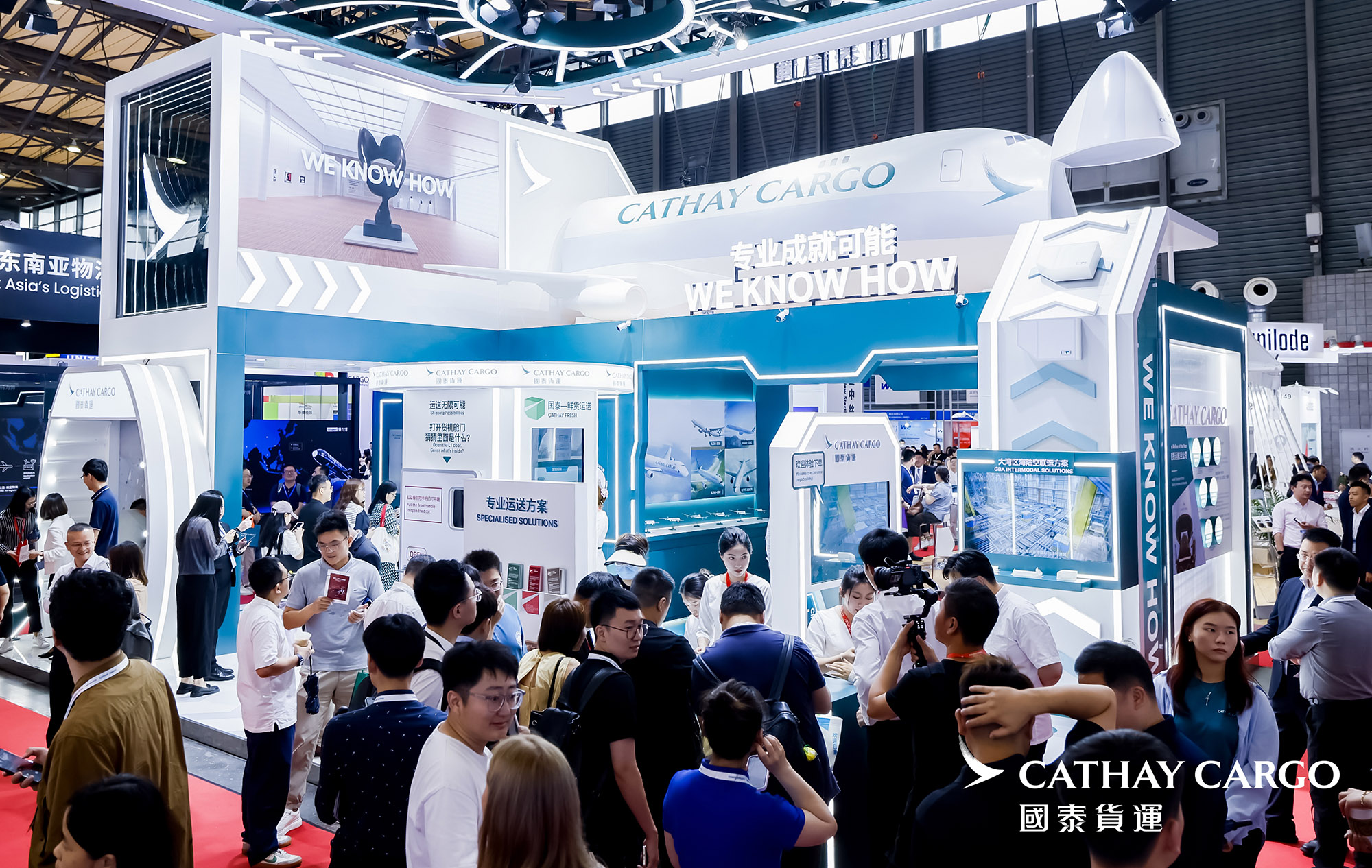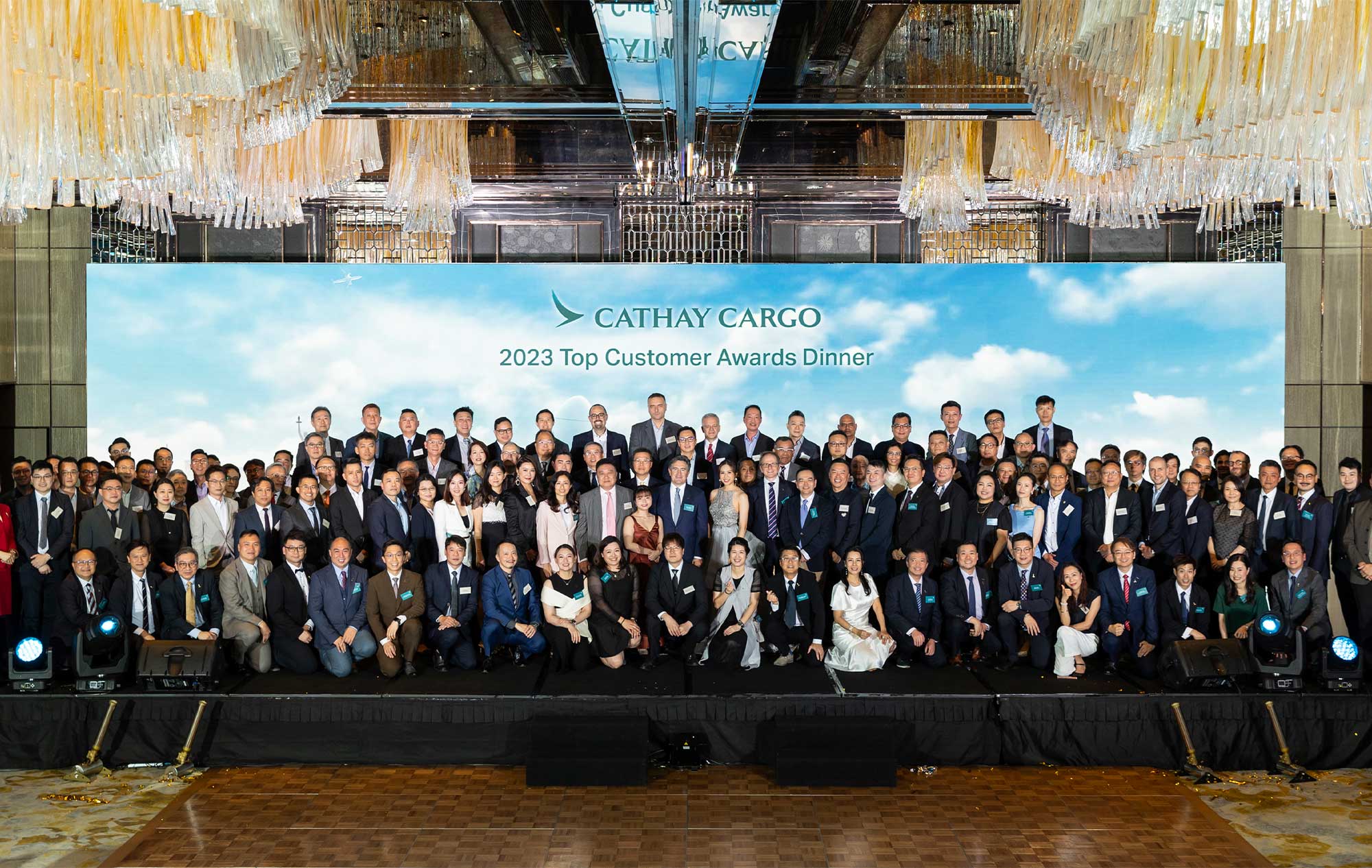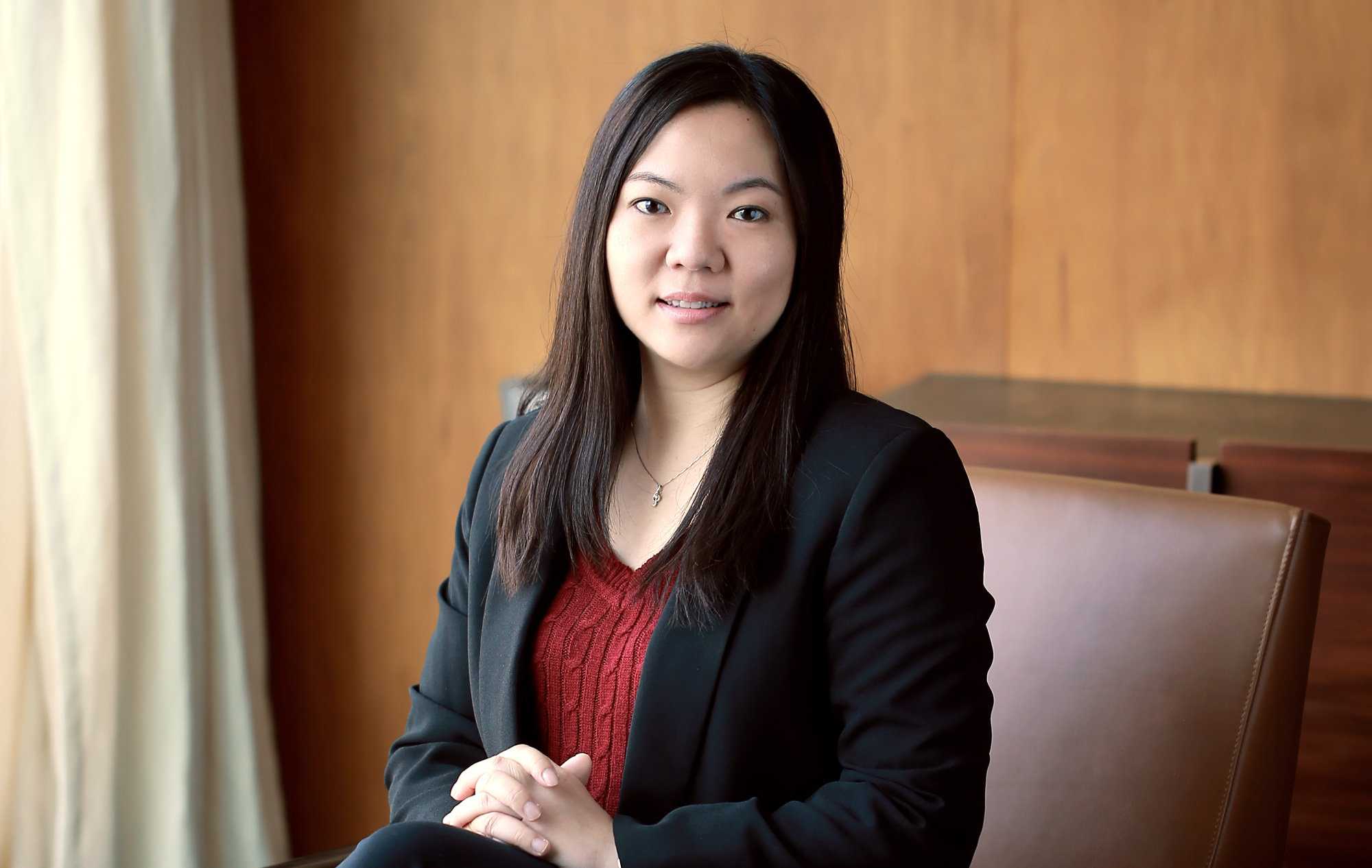Cathay Cargo and the Cathay Cargo Terminal have received the IATA CEIV Li-batt (Centre of Excellence for Independent Validators Lithium Batteries) certification.
With these latest accreditations, both Cathay Cargo and the Cathay Cargo Terminal now both hold the full set of CEIV certifications: CEIV Pharma, CEIV Fresh, CEIV Live Animals and now CEIV Li-batt.
CEIV Li-batt addresses an important issue for the logistics industry. The incorrect charging, handling and mislabelling of shipments containing lithium-ion batteries can endanger people and property, and has recently caused accidents on ocean carriers, and further back some aircraft too – at times even with a human cost. And with e-commerce continuing to grow, so too does the incidence of undeclared or misdeclared battery shipments.
Demand for shipments is growing, with the automotive sector leading the charge as e-vehicles replace combustion-powered cars to meet both consumer interest and regulatory requirements. There is also the burgeoning market for smaller batteries for consumer electronics. Shipments out of the Chinese Mainland, and Zhengzhou in particular, are one of the main routes for battery shipments – but safety is essential to prevent accidents in the supply chain.
‘The safe carriage of lithium-ion batteries is a core focus of our cargo business,’ says Director Cargo Tom Owen. ‘We have introduced a coherent and far-reaching series of safety protocols with our customers and operational teams to mitigate risks over the past few years. The CEIV Li-batt accreditation now achieved by both Cathay Cargo and the Cathay Cargo Terminal will give further confidence to our customers that we adhere to the highest standards of handling in the industry.’
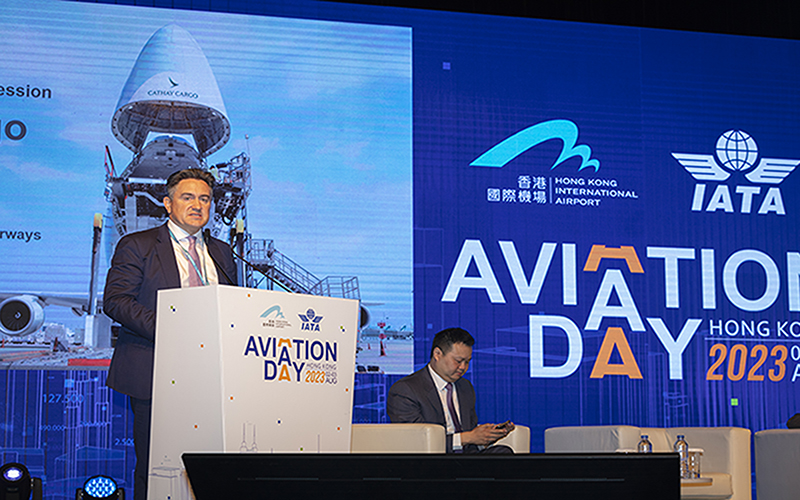
CEIV Li-batt formalises baseline standards to improve the handling and carriage of lithium-ion batteries across the logistics supply chain. The accreditation is available to shippers, forwarders and cargo terminal operators, and is underpinned by the IATA Dangerous Goods Regulations (DGR) and the IATA Lithium Battery Shipping Regulations (LBSR), which adds training, assessment and validation that demonstrate compliance with these regulations.
The airline-specific CEIV Li-batt accreditation joins Cathay Cargo’s existing mitigations for lithium-ion battery shipments, which include a full range of fire containment bags (FCBs) and fire-resistant containers (FRCs) and have enabled Cathay Cargo to carry some types of lithium-ion battery shipments on its freighter network. Cathay Cargo also operates its Cargo Agent Operation Programme and an additional indemnity scheme for mislabelled dangerous goods as the supply chain becomes more complex.
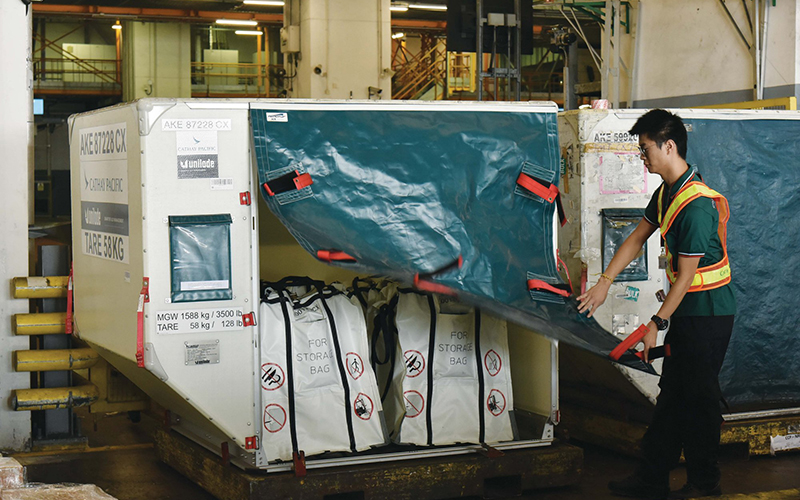
In addition, as of mid-August Cathay Cargo Terminal is now enforcing Enhanced Screening Checks for lithium-ion battery shipments, in order to mitigate potential risks of misdeclared shipments: especially when separate batteries are incorrectly declared as being integrated into equipment. These enhanced checks may involve additional physical open-box checks, when shipments appear unclear on X-ray scans.
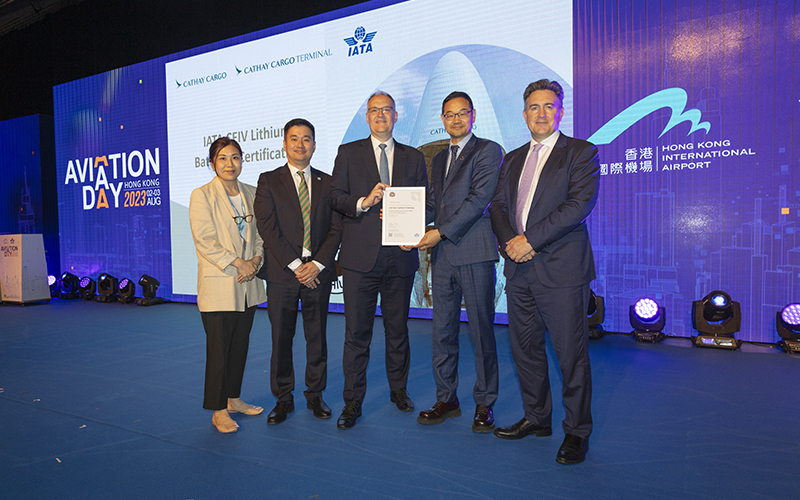
‘We congratulate Cathay Cargo and its cargo terminal operator, Cathay Cargo Terminal, on successfully achieving IATA’s CEIV Lithium Batteries certification,’ says IATA Regional Vice President for North Asia Dr Xie Xingquan. ‘This accomplishment by one of the world’s largest cargo operators and its partner in one of the busiest logistics hubs globally is a significant boost for the aviation industry. Furthermore, it assures the customers of these organisations that they are adhering to the highest safety and security standards when transporting products containing lithium-ion batteries.’
Cathay Cargo’s Owen adds: ‘We will continue to innovate and optimise our processes around safe lithium-ion battery carriage. The work we are doing related to this will remain as the upmost priority for our operational teams.’
To learn more about Cathay Dangerous Goods:
Hero image: Cathay Pacific Director Cargo Tom Owen and Chief Customer & Commercial Officer Lavinia Lau receive the CEIV Lithium Batteries certificate from IATA Regional Vice President for North Asia Dr Xie Xingquan





